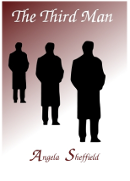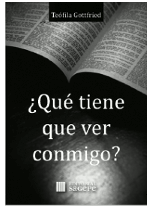Truth really can be stranger than fiction.
First Page - Now launched! All the stories are true, or based on real events. Unlimited reading for $4.99 / month. No downloads. Read on your phone, tablet or computer.
La verdad puede ser más extraña que la ficción.
First Page - ¡Ya está en marcha! Todas las historias son verídicas, o están basadas en hechos reales. Lectura ilimitada por $4.99 / mes. No hay que descargar nada. Lea en su teléfono, tableta u ordenador.
Manna Minutes Podcast: Eye-opening Bible study in less than five minutes! Access all episodes here.
Manna Minutes en español:
Estudio bíblico que nos hace abrir los ojos en menos de cinco minutos! Acceda a todos los episodios aquí.
Manna Minutes Podcast auf Deutsch:
Augenöffnendes Bibelstudium in weniger als fünf Minuten! Alle Episoden finden Sie hier.
Was There A Curse On Helen's Romantic Life?
The Third Man by Angela Sheffield is based on a true story. Read chapter one now!
View Content By Specific Category
¿Qué tiene que ver conmigo? por Teófila Gottfried
Lo que leemos en la Biblia tiene que ver con todos los seres humanos, sean cristianos o judíos, ateos o agnósticos, budistas, musulmanes o adherentes a alguna de las filosofías o nuevas religiones que surgen en el mundo. ¿Por qué? Ver mayor información sobre este interesante libro.
Scripture of The Day - St. John 14:6
Jesus saith unto him, I am the way, the truth, and the life: no man cometh unto the Father, but by me.
Escritura del día - San Juan 14,6
Jesús le dijo: Yo soy el camino, y la verdad, y la vida; nadie viene al Padre, sino por mí.
Bibelstelle des Tages - Johannes 14,6
Jesus spricht zu ihm: Ich bin der Weg und die Wahrheit und das Leben; niemand kommt zum Vater, denn durch mich!
The Apocrypha (The "missing" books of the Bible)
The apocrypha consists of the works of Jewish literature written approximately two hundred years before Christ. They make up part of the translation into the greek language of the Jewish scriptures known as the Septuagint. They are I and II Maccabees, Tobit, Judith, Ecclesiasticus (Sirac), Wisdom, Baruch, supplements to the books of Esther and Daniel, the prayer of Manasseh and I and II Esdras (these last two are not recognized as scripture by the Catholic church).
These books do not claim to be inspired by God. On the contrary, the author of the book of Sirach asks those who read the work to forgive all of the mistakes that are in it and the author of the Maccabees ends his writing with the following statement: "If this is well written and expresses all that I have intended for it to say, I have my desire; if it is poorly written and mediocre, I have done the best job I can do." We do not speak like this of a work that we believe to be inspired by God. What is more serious is that these books teach doctrines that are contrary to the word of God For example, compare Sirach 3:3,30 with Galatians 2:15-21, 3:10-14, Tobit 12:9 contradicts 1 John 1:7; Hebrews 9:14; Titus 2:14; Wisdom 8:19,20 contradicts Romans 3:9-20). These books encourage customs that are contrary to the holy scriptures. The "scripture" of Sirach 12:4-7 does not agree with Luke 6:27-38 and Matthew 5:43-48.
It must be emphasized that these books were not recognized as a part of the Christian canon (collection of God inspired books on which the doctrine of Christ is based). The books of the Apocrypha were written in Greek and are not a part of the Masoretic texts which are copies of the texts in Hebrew of the holy scriptures. The Jewish historian Josephus, maintains that there are only twenty-two books that the Jews recognized as being divinely inspired. That is the equivalent of 39 books in the protestant Bible because some of them, such as those of the "minor" prophets were counted as a single book. Even until this day, they maintain that the same Old Testament is the word of God. The rejection by the Jews of the texts of the Apocrypha is very significant because they, not the gentiles, are the people to whom God entrusted the keeping of His word.
What advantage then hath the Jew?...Much every way. Chiefly, because that unto them were committed the oracles (words) of God. (Romans 3:1,2)
It is also significant that although Jesus and all of the other authors of the New Testament make reference to almost all of the books of the Old Testament, they never even once refer to any book of the Apocrypha.
How is it then that the book of the Apocrypha came to make up part of the Catholic Bible? Around the first part of the second century, the first translations of the Bible into Latin were from the Septuagint which included the books of the Apocrypha. Nevertheless, they were not generally recognized as part of the Christian canon on the same level as the books of the Old Testament. The Apocrypha was added to the Bible at the council of Trent in the sixteenth century. This is in direct defiance to the word that came from the mouth of the Lord!
Ye shall not add unto the word which I command you... (Deuteronomy 4:2)
The books of the Apocrypha contain errors . For example in II Esdras 6:42 we read: On the third day, you (speaking to God) commanded that the waters be joined together in the seventh part of the earth; six parts you commanded to be dried up and kept for yourself that some of them (the land) would be cultivated and used for your purpose. The book of Judith 1:1 says: The Kingdom of Nebuchadnezzar which reigned over the Assyrians in the great city of Ninevah. Nebuchadnezzar was not king of Ninevah but rather of the Neo-Babylonian empire. The book of Wisdom claims that God created the world from formless matter. Tobit and Judith contain many historical, chronological, and geographical mistakes.
©2003 - 2013 Heavenly Manna Ministries
Images: courtesy of Free Digital Photos, openstockphotography.org, FreeFoto.com, Wikimedia Commons. Multiple crosses image - Wikimedia Commons - C.G.P Grey - Animation by Heavenly Manna










